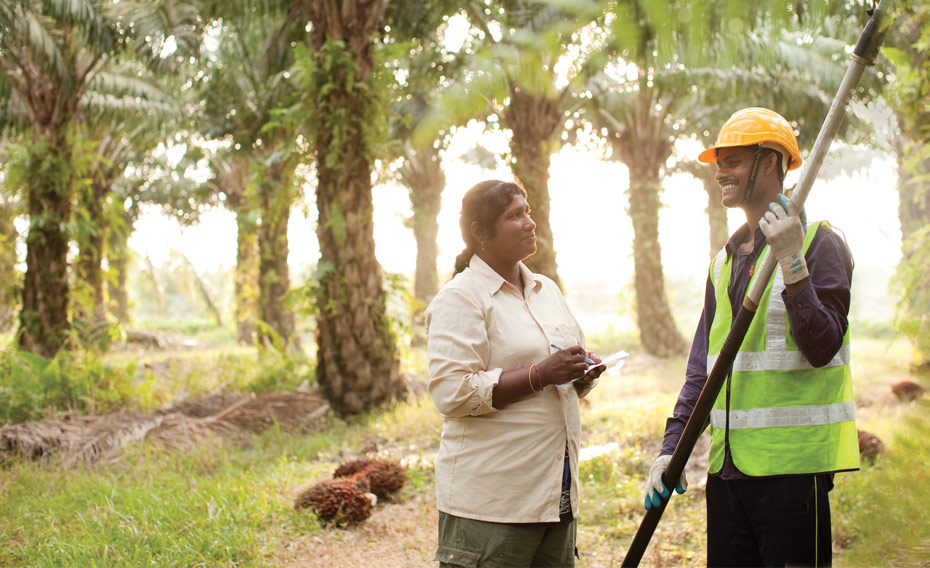
REDUCING OUR IMPACT As part of efforts to encourage sustainable palm oil supply and sourcing, Johnson & Johnson works with organizations that engage in sustainable palm oil farming practices.
Supporting Sustainable Sourcing
When consumers in France unwrap a LE PETIT MARSEILLAIS® bar of soap, they may notice an additional logo: that of the GreenPalm program. LE PETIT MARSEILLAIS® recently began using the GreenPalm logo on packaging to highlight efforts supporting sustainable palm oil production.
Palm oil and ingredients derived from palm oil are commonly used in personal care products such as soaps, lotions, shampoos and creams. The oil, which comes from the fruit of the oil palm tree, is also used in the production of food and biofuel. The demand for palm oil is increasing at an unsustainable rate, causing damage to rainforests and threatening the environments of several endangered species.
The demand for palm oil is increasing at an unsustainable rate, causing damage to rainforests and threatening the environments of several endangered species.
“Even though we represent a small portion of global palm oil usage—less than 0.2 percent in 2011—we joined the Roundtable for Sustainable Palm Oil (RSPO) in 2006 to help make a difference in the sustainability of this important ingredient,” says Paulette Frank, Vice President, Sustainability and Environment, Health and Safety, Johnson & Johnson Family of Consumer Companies.
In 2010 and 2011, sustainable palm oil certificates equal to 100 percent of our estimated palm oil use were purchased from the GreenPalm program, which is endorsed by the RSPO.
“The GreenPalm program allows us to demonstrate our commitment to our Healthy Future 2015 goal of sourcing all palm oil and palm oil derivatives from certified sustainable sources,” says Simon Perry, Sourcing Manager, Johnson & Johnson Family of Consumer Companies.
To achieve the 2015 goal, Johnson & Johnson has a global palm oil sourcing strategy that includes engaging our suppliers, collaborating with nongovernmental organizations (NGOs) and supporting projects to increase the availability of certified sustainable palm oil supplies. For example, a partnership with the Dutch NGO Solidaridad trains farmers in sustainable palm oil farming techniques.
“We are doing everything we can to accelerate and promote the growth of sustainable palm oil,” says Frank. “We're a small user, but we have a big voice.” ![]()

Returning Quality McNeil Products
McNeil Consumer Healthcare continues to make progress against commitments to return high-quality products to shelves for consumers.
Shipments have resumed for a number of adult and children's TYLENOL® products. We anticipate that key selected products will continue to be reintroduced throughout 2012. A number of Johnson & Johnson manufacturing facilities—and hundreds of supply chain associates—have been involved in the effort to return these trusted brands to store shelves.
Work also continues to outfit the manufacturing facility in Fort Washington, Pa., with state-of-the-art equipment and processes to provide quality products to consumers. Upon its reopening, the site will be a world-class facility for manufacturing over-the-counter liquid medicines. ![]()